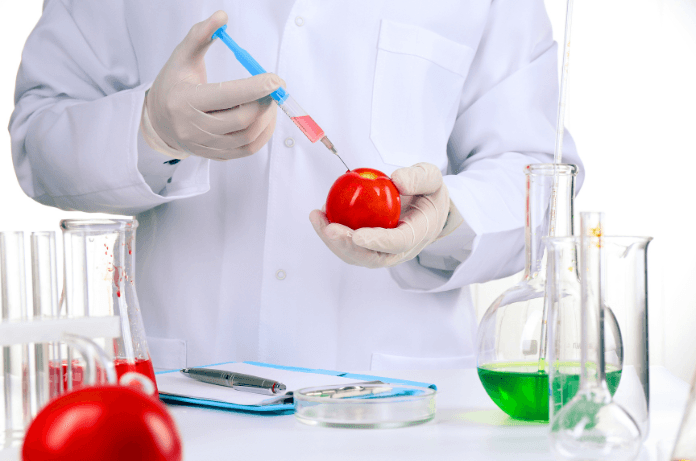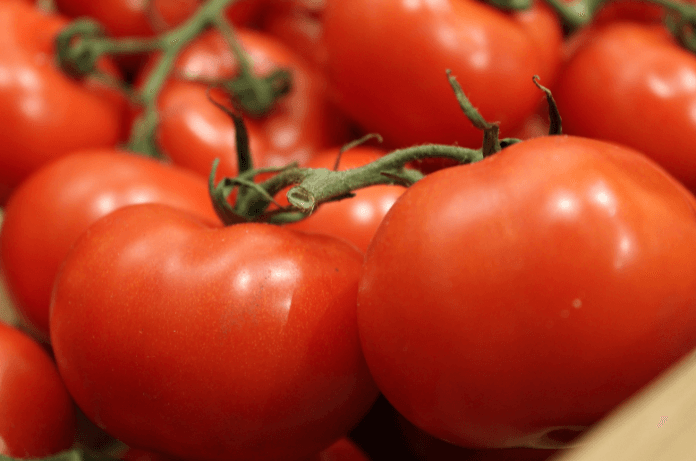Tomatoes, once prized for their robust, sweet flavor, have evolved over decades into larger, more commercially viable crops that often lack taste. Consumers have noted that while today’s tomatoes are big and visually appealing, they tend to be disappointingly bland. Fortunately, a groundbreaking genetic discovery is poised to change this. Researchers have identified specific genes that can be modified to increase the sugar content in tomatoes, allowing for a perfect balance of size, yield, and sweetness. This advancement is set to redefine the tomato industry, rekindling the original flavors that food lovers cherish.
The Trade-off Between Size and Flavor
Domesticated tomatoes have been bred over generations to focus on yield and size. This breeding has led to fruit that is often 10 to 100 times larger than its wild relatives. However, this success has come at a cost: flavor. Wild tomatoes, although smaller, naturally contain higher levels of sweetness. Consumers are eager for tomatoes that offer the best of both worlds large, juicy, and bursting with flavor but achieving this has been difficult due to the seemingly inverse relationship between yield and quality.

Farmers have been the primary beneficiaries of these breeding practices, enjoying increased productivity. However, as consumer demand for better-tasting produce has grown, balancing the needs of farmers with those of consumers has become a pressing challenge. Prof. Sanwen Huang from the Agricultural Genomics Institute at the Chinese Academy of Agricultural Science in Shenzhen has shed light on this, emphasizing the importance of meeting both agricultural and consumer needs. “As farmers want larger tomatoes and higher yield, the consumers want sweeter tomatoes,” Huang said. The team’s recent work may finally provide a solution that satisfies both sides.
Breakthrough Gene Discovery in China
In their groundbreaking research, Prof. Huang’s team discovered two genes that act as “sugar brakes” during the ripening process of tomatoes. These genes, which are prevalent in wild tomato plants, help regulate sugar production, ensuring that the fruit does not overuse its energy reserves. However, these essential genes have been lost in many modern, high-yield varieties. By identifying and targeting these genes, researchers can improve the sugar content in domesticated tomatoes without sacrificing their size or yield.
Gene Editing for Sweeter, High-Yield Tomatoes
Leveraging Crispr-Cas9, a state-of-the-art gene-editing tool, the team made precise changes to the DNA of modern tomato plants to disable these “sugar brake” genes. The result? Domesticated tomatoes with a significant 30% increase in sugar levels compared to their unmodified counterparts. Notably, this breakthrough did not result in any decrease in the size or productivity of the fruit, a result that defies the conventional belief that quality must come at the expense of quantity.
Key Findings:
- Increased Sweetness: Gene-edited tomatoes showed a 30% boost in sugar content, thanks to elevated levels of glucose and fructose.
- Consistent Yield: The fruit size and the overall number of tomatoes produced remained unchanged.
- Seed Characteristics: Although the edited tomatoes had fewer, lighter seeds, their germination rates were unaffected, indicating a healthy reproductive process.
Global Implications and Expert Opinions
The research has gained international attention, with experts praising its implications for the future of agriculture. Christophe Rothan, a fruit biologist at the French National Institute of Agricultural Research in Paris, lauded the study as “great and significant in its field and beyond.” He highlighted that the findings could inspire breeders to tap into the genetic diversity available in wild species to enhance modern crops.
Ann Powell, a retired plant biochemist from the University of California, pointed out the potential economic benefits. Sweeter tomatoes could streamline the production process for tomato-based products, such as paste, by reducing the amount of water that needs to be removed. This could lead to cost savings and more sustainable production methods.
A Step Forward for Agricultural Crops
The impact of this discovery may extend beyond tomatoes. The identified “sugar brake” genes are found across various plant species, hinting at the potential to apply these findings to other fruits. For years, researchers have been puzzled by the complex processes behind sugar production in fruits. This study brings them closer to unraveling those mechanisms, paving the way for genetic enhancements that could benefit a wide range of crops.
Moreover, using gene-editing techniques like Crispr-Cas9 ensures that these genetic changes are precise and do not compromise the plant’s other vital characteristics. This marks an essential step in producing high-quality, flavorful produce on a large scale without sacrificing yield or sustainability.
A Sweeter Future for Tomatoes and Beyond
The ability to cultivate large, sweet tomatoes without reducing their yield represents a pivotal moment in agricultural science. With continued research and broader applications, this gene-editing breakthrough could transform not only the tomato industry but also enhance the flavor and quality of various fruits and vegetables worldwide. As scientists explore further genetic advancements, the future holds the promise of crops that meet both consumer expectations and the practical needs of farmers.

